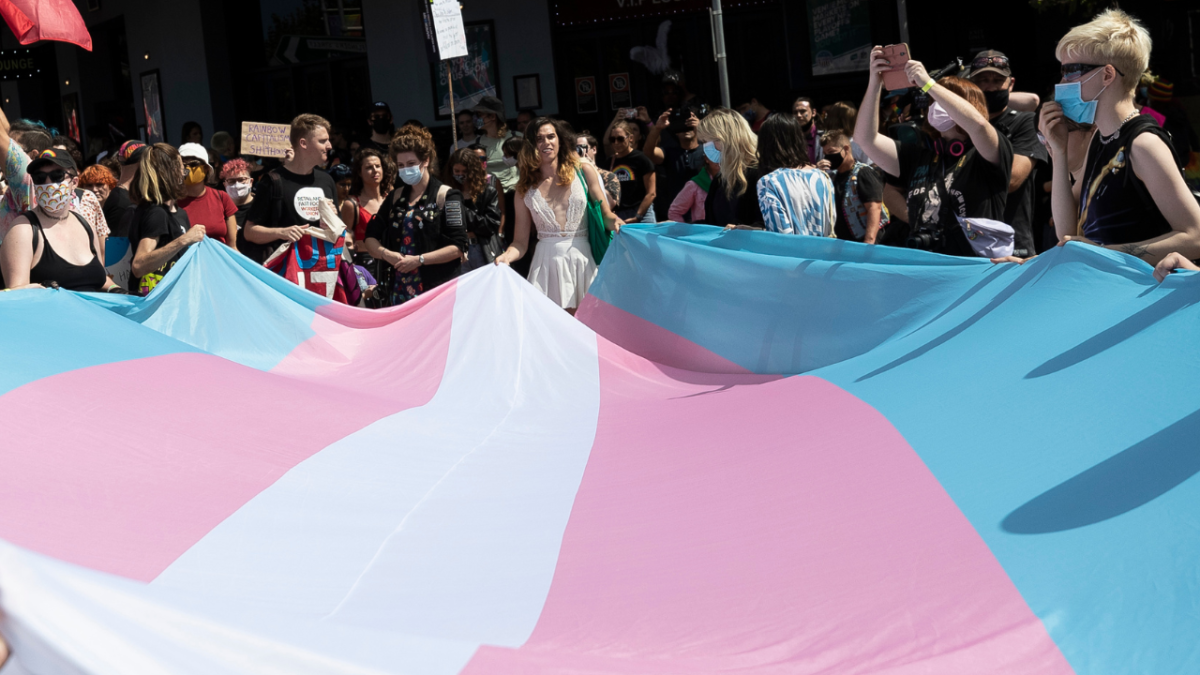
The Special Commission of Inquiry into LGBTIQ hate crimes has heard that trans and gender diverse people might be at greater risk of violence “than ever before”. This is both extremely distressing and sadly, not a surprise.
The inquiry was launched by the NSW Government back in April 2022. It’s looking into four decades of hate crimes, specifically focused on suspected hate crimes against LGBTQIA+ people between 1970 and 2010.
Dr Eloise Brook from The Gender Centre — a non-profit dedicated to the trans and gender diverse community — appeared at the inquiry on November 24. She also gave a written submission to the inquiry.
During the hearing she touched on some of the history of NSW’s trans community, which she described as being “swept up” into violence against other members of the LGBTQIA+ community.
Brook explained that in the 1980s, “the delineation in the LGBT community was not anywhere near as it is now”.
“Especially older community members have really strong ties to the gay community in Sydney and New South Wales because they all shared the same experience of oppression… [and] violence,” she said.
She also touched on the fact that loads of queer people explore their sexuality and their gender identity.
“We even see it today often in coming out; a young person might come out as gay or lesbian, explore that identity and then perhaps in some cases realise that sexuality was a part of who they were, but gender identity was also another part,” Brook said.
“So I think that certainly in the period that the commission is examining, that delineation between the communities was a lot less”.
She spoke about this particularly in regard to sex work at the time.
“The delineation between a trans sex worker or perhaps someone who identifies as gay but might do sex work in drag: all of these different kinds of nuances of identity and sexuality were not as obvious or evident.”
This meant that when it came to violence there was “no distinction” between different groups.
“No one took the time to find out whether someone was trans, a trans woman, or gay when they were perpetrating violence against them,” Brook explained.
The inquiry also touched on the moral panic around trans people which was spread by a 1979 book by Janice Raymond. In her written submission to the inquiry, Brook said the book “started a hateful and transphobic discourse against trans women in particular”.
Speaking to the inquiry, Brooks said those ideas were still “recycled” now.
“We still frequently hear the same kinds of arguments or positions that Raymond put back in the beginning of the 80s.”
The prevalence of anti-trans rhetoric is still a huge issue in Australia. Now I’m just saying: cough cough, The Australian, cough cough.
In her written statement, Brooks said that recently, parts of the Aussie media landscape have “propagated cycles of moral outrage, fuelling public attitudes towards trans and gender diverse” folks.
“Transgender and gender diverse people cannot participate in modern Australian society without the reality and legitimacy of our existence being constantly challenged,” she added.
Writing about violence against trans people, Brooks noted that while the special commission is particularly focused on 1970 to 2010, anti-LGBTQIA+ violence isn’t a “purely historical phenomenon”.
“In some ways the trans and gender diverse community is now at greater risk of violence than ever before.”
We know the huge toll our society’s transphobia has on trans and gender diverse people — and the fact it could potentially be worse than it was forty years ago is incredibly fucking damning.
The inquiry into LGBTQIA+ hate crimes will continue on Friday, November 24.
If you’d like to talk about the issues raised in this story, you can call the QLife LGBTI
peer support hotline on 1800 184 527 or chat online.
QLife operates between 3pm and midnight daily. Under 25? You can reach Kids Helpline at 1800 55 1800 or chat online.



